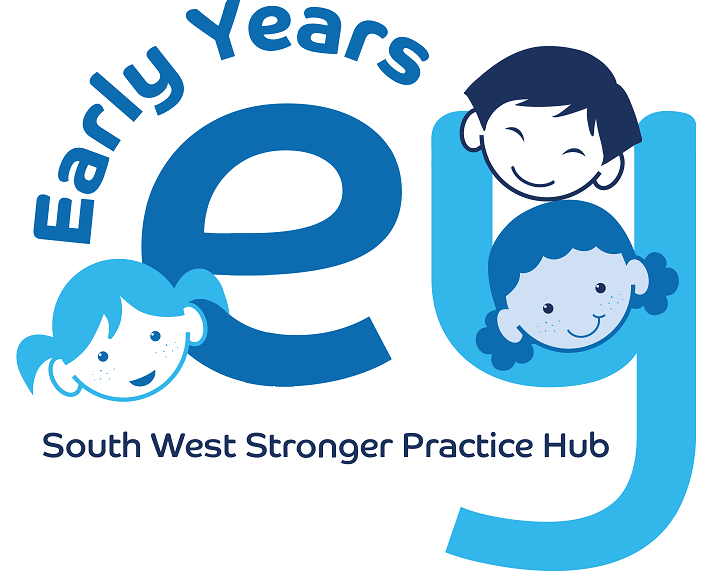Since January 2024 we have experienced three Ofsted inspections across our alliance. This has been a challenging but rewarding experience and it has given us the opportunity to reflect on the impact of high quality, evidence-based research projects and how they have helped to shape the quality of our provision and the professional understanding of our staff. Being involved with the Early Years Southwest Stronger Practice Hub has helped us to understand and use the high quality resources that are being developed to support the early years sector. This blog will feature the way we have used the EEF Early Years Evidence Store with our staff.
When the Stronger Practice Hubs were first initiated the government tasked the EEF, who already supported primary and secondary schools across the country with high quality CPD, to develop resources to support the early years sector. It became clear quite quickly that the sector would benefit hugely from high quality research-based materials being available in one place through a recognised national body. The EEF focused on the six main themes that they believed would have the most impact on improving provision in the sector. This was a response to the impact that covid has had on our very youngest children. Many of whom were babies and born during the pandemic.
In our settings and schools, we have staff with a range of qualifications from apprentices to fully qualified teachers. The Evidence Store ambitiously sets out to offer a wide range of support to meet the needs of the diverse workforce. For example, those staff members taking further early years qualifications and leading settings can find well-referenced evidence-based research notes which enable them to develop a deep knowledge of the principles behind the key theme. Whilst short vignette videos enable everyone to see high quality provision in practice.
Communication and Language
This theme is one of the prime areas and key to ensuring children reach their milestones. The impact of covid had caused the number of children with challenges in this area to increase. The Evidence Store explores five approaches for supporting the development of communication and language. Within each approach we are provide with examples of explicit and implicit practice and high quality vignette videos help to bring this to life. We have used these materials at staff meetings to support professional development and allow collaborative inquiry opportunities to develop.
Personal, Social and Emotional Development
Here we can explore seven approaches to support the development of this prime area. In our experience, since the pandemic many more children are arriving at nursery without having developed the skills and knowledge to manage their feelings. The evidence store provides high quality researched based strategies to enable staff to teach these behaviours so that children can be ‘school ready’. We found it helped our staff to develop a clearer understanding of why they might choose a certain activity and what the purpose behind it was. Also, what the next steps might be and how their interactions supported the overall development of the child.
Early Literacy
There are six approaches explored to develop early Literacy. This section offers a greater clarity around small steps in developing this area of learning and the vignette videos were very helpful to enable our staff to explore what this might look like in action. They way the materials are laid out supported our leaders to identify what and how to use the resources to deepen the understanding of our staff. It also allows our staff to revisit the materials after the training session.
Early Maths
There are five approaches explored to develop early maths. We have used these materials to enable staff to explore the maths curriculum we are offering and consider whether we have a balance across each of the approaches or whether one approach is not as prominent as the others. This has enabled staff to be able to develop professional dialogue to deepen their understanding of how they are developing early maths and helped us to map out the small steps in learning that we want them to teach.
Self-Regulation and Executive Function
There are five approaches explored to develop this theme. The theme explores how we can develop children’s executive function through the way we provide challenge and cognitive training programmes. This enables them to develop a greater awareness of their thoughts and feelings and be able to adapt their actions and behaviour in different contexts. We found this theme very helpful to develop our staff’s understanding of how important it is for them to scaffold the children’s thinking and problem solving.
Physical Development
This is the latest theme that has been developed and it explores three approaches to developing physical development. It is another prime area that many more vulnerable children had restricted access to during covid. We have found that initially some children have not met their key milestones in physical development, and we have had to offer and teach the skills and knowledge more explicitly. We have also found that helping staff to understand the importance of the three approaches has enabled them to offer a richer experience to our children.
Next steps
Having experienced three Ofsted inspections in six months, it is clear to us that the framework has an unapologetic focus on the early years curriculum and how we are designing it to enable our children to make the best possible start in life. We would recommend exploring the evidence store and planning a programme of training across the year so that your staff will feel confident in their understanding of what activities to offer and how they fit into the wider strategic curriculum plan. We were very proud of all of our staff and the way they are able to describe and explain the reasons behind the activities they have prepared for the children. The Evidence Store has given them the confidence to deepen their knowledge and understanding and be able to articulate this.
